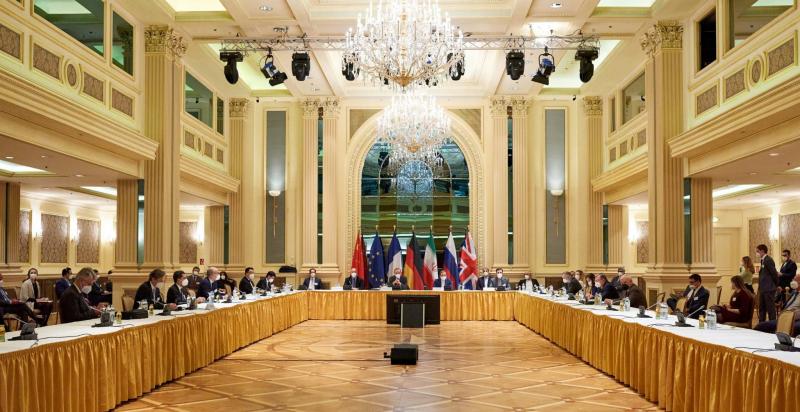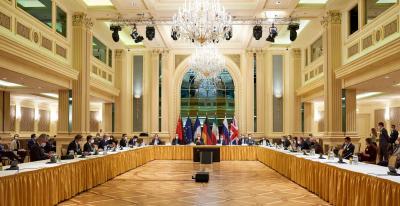US Secretary of State Antony Blinken affirmed on Tuesday that "US sanctions unrelated to the nuclear file will remain on Iran." Meanwhile, Iran's representative to international organizations accused the International Atomic Energy Agency (IAEA) of pursuing political agendas during side meetings in Vienna. The Iranian envoy stated that the IAEA Director's approach may hinder cooperation between Tehran and the agency. He added that the agency should distance itself from political agendas, as he described.
Gharib Abadi considered IAEA Director General Rafael Grossi's statements, expressing concern about the level of uranium enrichment at Iranian sites, as indicative of a biased approach against Iran. Abadi tweeted: "The IAEA report does not align with the records of cooperation between Iran and the IAEA and is inaccurate because it lacks credible sources and is unconvincing as it does not reflect all aspects of cooperation and progress between the two parties."
Earlier, Grossi criticized Iran for its lack of transparency and cooperation, expressing the agency's concerns regarding the secrecy and advancement of the Iranian nuclear program. He stated that the facts had been presented to the IAEA Board of Governors to take necessary decisions or actions. Grossi emphasized that the path to trust with Iran involves information and complete transparency, reiterating his call for Iran to provide information to build trust, after confirming that it had not provided the necessary explanations regarding the presence of nuclear material particles at any of the three undisclosed sites on its territory despite months passing since the request.
In his speech to the IAEA Board of Governors on Monday, he added that trust could not be rebuilt unless Tehran demonstrated its commitment, referring to Iran's ongoing claims of acting in good faith, hoping that such talk would translate into serious action. He also stressed that authorities there cannot obstruct the work of international inspectors and then pretend there is mutual trust, according to his remarks.
US Secretary of State Antony Blinken previously stated on Monday that if the Iranian nuclear program continues, the time required to produce a nuclear weapon will decrease to a few weeks. He told lawmakers, "It remains unclear whether Iran is willing and ready to do what is necessary to return to compliance with the 2015 nuclear agreement." He added, "Its nuclear program is advancing rapidly, and the longer this continues, the shorter the time required to produce fissile material... It has now reportedly diminished to a few months at best. If this continues, it will drop to weeks."
Only Eight Days Left
If talks resume on Thursday, there will be only eight days left to reach an agreement before the scheduled Iranian elections on June 18. Some delegates say it is possible to reach an agreement by then, but the odds are not high.




